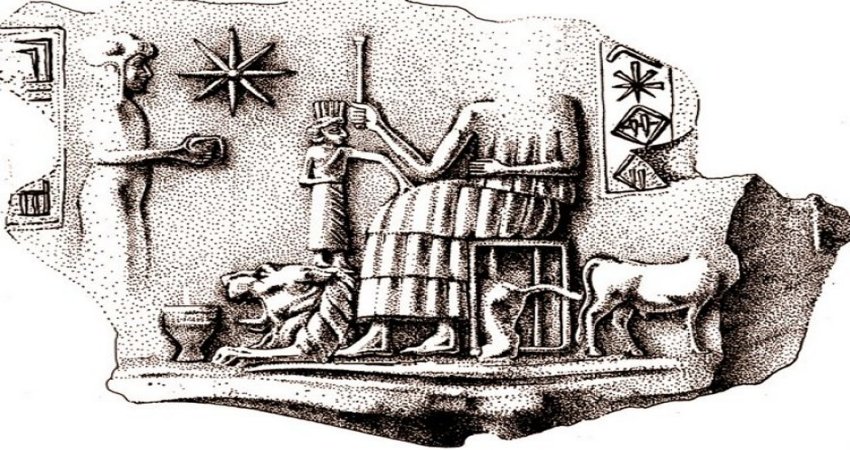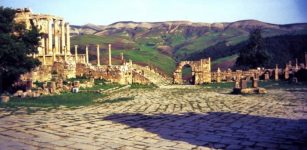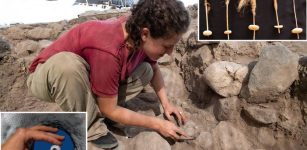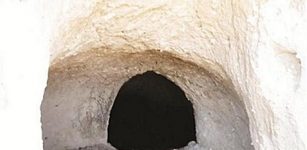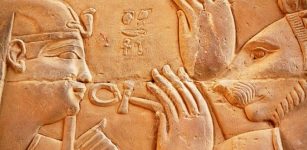Quest For Legendary Ophir – The Biblical El Dorado
MessageToEagle.com – Ophir was famous for its magnificent gold.
It was a Biblical El Dorado from where King Solomon received a cargo of gold, silver, sandalwood, precious stones, ivory, apes and peacocks every three years.
The location of Ophir, has been “uncertain” and disputed for more than two millennia. Where was this wondrous place of Ophir? The true location of Ophir remains shrouded in mystery.
It is still unclear whether Ophir was actually a port, a land or a city, but the place is mentioned in the Bible.
“And Hiram sent his servants with the fleet, sailors who knew the sea, along with the servants of Solomon. 28They went to Ophir and took four hundred and twenty talents of gold from there, and brought it to King Solomon.”
– 1 Kings 9:28“Now Jehoshaphat built a fleet of trading ships to go to Ophir for gold, but they never set sail–they were wrecked at Ezion Geber.”
– 1 Kings 22:48“… three thousand talents of gold (gold of Ophir) and seven thousand talents of refined silver, for the overlaying of the walls of the buildings,”
– 1 Chronicles 29:4
The famous ‘gold of Ophir’ is referenced in several other books of the Hebrew Bible. Ophir in Genesis 10 (the Table of Nations) is said to be the name of one of the sons of Joktan.
The Books of Kings and Chronicles tell of a joint expedition to Ophir by King Solomon and the Tyrian king Hiram I from Eziongeber, a port on the Red Sea, that brought back large amounts of gold, precious stones and ‘algum wood’ and of a later failed expedition by king Jehoshaphat of Judah.
Yet another clue can be found in the description of Ptolemy, a mathematician, astronomer, and geographer.
According to his words, there is an island, rich in gold and located on the southern coast of Africa. It is marked on old maps as Zafala/Sofala, which corresponds to the name of the city on the coast of Mozambique.
Very long time ago, Sofala was the largest port of Africa and people from all over the country brought there, gold, and ivory.
An interesting reference made by the Arab traveler Ibn Batuta (1304 – 1368) born in Tangier (northern Morocco), highlights a mysterious country located behind the Sofala coast, named Youfi, which sounds very similar to Ophir.
“From Youfi they bring gold dust to Sofala…”
Could it be the legendary Ophir?
In 1871, the German geologist Carl Mauch visited the ruins of Zimbabwe in Rhodesia near Lake Victoria and officially announced that he believed it to be the remains of a citadel of Ophir, which was supposed to have contained the vast gold mines and his theory was supported by some other scholars.
There are many assumptions concerning the location of Ophir. Eupolemus, the first significant Greco-Jewish historia was of the opinion that Ophir is an island in the Red Sea. Titus Flavius Josephus, first-century Romano-Jewish scholar, historian and hagiographe locates Ophir in India, somewhere in the regions between one of the tributaries of the Indus River and China.
It has also been suggested that Ophir should be located along the coast of the Arabian Peninsula, since the location of Ophir the son of Joktan the son of Eber was between Sheba and Havilah (Gen. 10:28-29), which were also famous in the biblical period for their gold (Gen. 2:11; Isa. 60:6; Ezek. 27:22; Ps. 72:15).
The most likely location of Ophir to have been suggested so far is the region of Somalia on the East African coast, possibly extending to the neighboring coast of South Arabia.
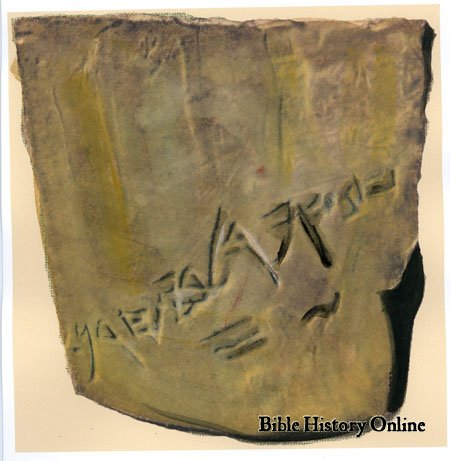
The products of Ophir are characteristically African and are similar to those of Punt, which suggests that Ophir and Punt were located in the same region. It is certain that Punt was in the area of Somalia, and it is thus likely that Ophir was situated there as well.
See also:
Mystery Of King Solomon’s Mines: An Unsolved Ancient Enigma
Secrets Of The Stars: Tracing The Origins Of Ancient Cults And Cabals
Sailing to Ophir apparently required much preparation, and could not be accomplished without outside help.
In the days of Solomon the voyage was undertaken with the assistance of Tyrian sailors. Even in the days of Jehoshaphat, lengthy negotiations had been carried on between Jehoshaphat and Ahaziah king of Israel for the purpose of preparing the journey to Ophir, and still it did not succeed.
A while back a fragment of an ancient pottery jar was discovered at Tel Qasile near Jaffa in Israel.
It contains an inscription which mentions “Ophir gold” and the temple of Horon, a Canaanite deity.
We do not known, but the artifact is intriguing. Considering that Solomon’s fleet of ocean-going ships, fully loaded with gold and other treasures like silver, precious stones, apes, ivory, sandalwood, peacocks and valuable almug trees, needed three years to return home, it must have been a rather distant place…
MessageToEagle.com
References:




